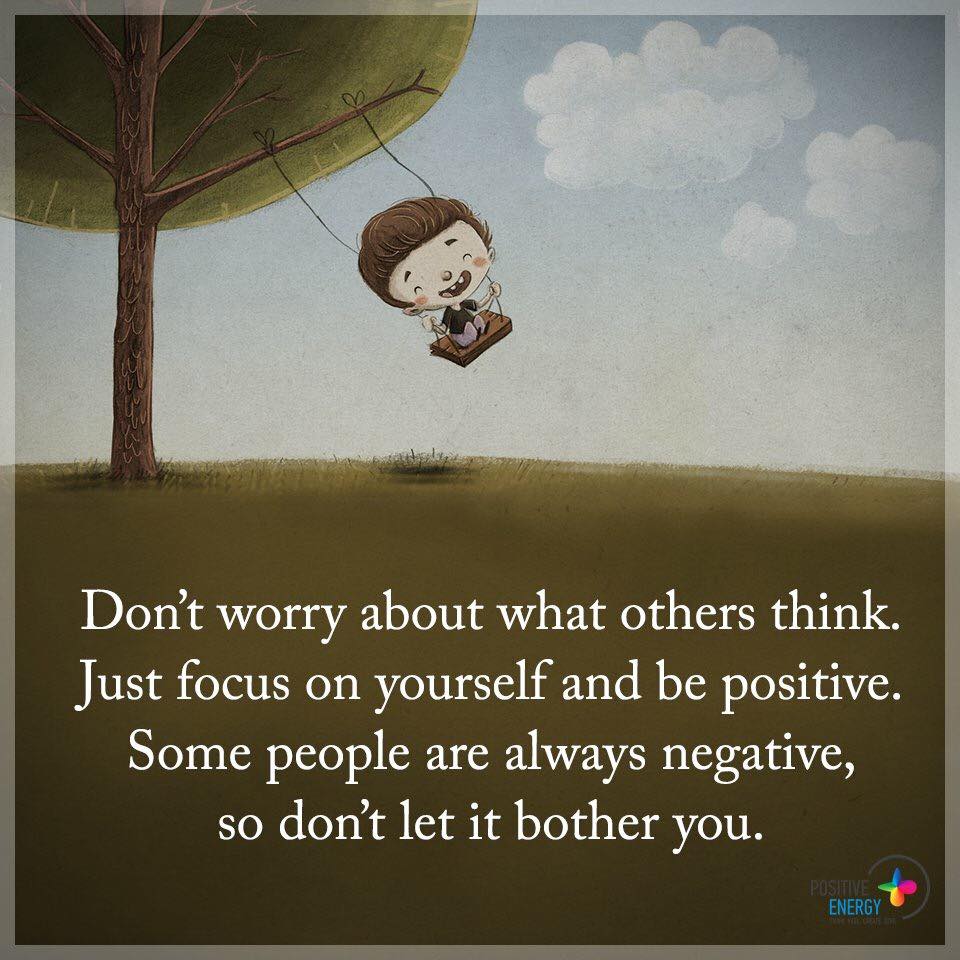Lifestyle: 9 Positive Ways to Handle Negative People

Sometimes (well-meaning) people give this advice: “Stay away from negative people.” It always troubles me. I can understand avoiding “toxic people such as bullies, sociopaths, conflict instigators and destroyers of good. (However), negative people, unlike “toxic people,” may be more about vulnerability and less about vice.” – Carrie Barron, M.D.
Human happiness heavily depends on the quality of our relationships, as human beings are predominantly social creatures. Even the shyest or most introverted person requires some level of human contact; this may help explain why the introverted and shy among us are the most prolific users of social media – a different outlet, but an outlet nonetheless.
A person that apparently exhibits negative behaviors, tendencies, etc. are often victims of circumstance. In other words, negativity – if it is negativity – wasn’t always their natural temperament. Something happened to them. In some cases that “something” is a tragedy.
For many of us, our natural inclination when dealing with a negative person is to find an escape route or lash out. However, this isn’t always the best way to handle the situation.
In this article, we focus on nine ways that us – as compassionate human beings – can positively control or manage a situation involving a “negative” person.
9 POSITIVE WAYS TO DEAL WITH NEGATIVE PEOPLE
1. UNDERSTAND THEIR BEHAVIOR IS NOT PERSONAL
Personality traits are hardwired into a person’s brain. The unfolding of events that created their negative state has changed the person. In a way, this transformation is reminiscent of an addict’s – the brain adapts and molds itself from stimuli, positive or negative.
Understanding that there is nothing personal about their negative behavior allows us to approach the situation with a bit more empathy.
2. LEND AN EAR – IF YOU’RE WILLING
By no means are you obligated to act as a confidante to a negative person. That said, a few of us possess both people skills and a profound sense of empathy to help. Think of a high school guidance counselor or social worker. Why’d they choose that career field? Certainly not for the money or recognition.
So, if you can honestly and confidently say you’re up to the challenge, then – by all means – lend an ear and a voice to someone who may desperately need one.
3. UNDERSTAND YOUR TRIGGERS
We could sit here are preach all day and night about the importance of empathy, understanding, and a bunch of other nice personality traits. However, not everyone possesses this kind of mindset or personality – and that’s okay too.
It’s much better to understand your triggers – in this case, the display of negative behavior – and simply walk away. You’re not contributing to their misery, and probably saving yourself from some by not getting involved.
4. LOOK FOR SOMETHING POSITIVE
This author believes– and I know many of you hold this view – that most people are good at their core. Similarly, we believe that even “negative people” have some innate qualities; even if they don’t show them often.
Maybe this “negative” person is generous to those who face or are facing circumstances that led to their predicament. Maybe they go above and beyond at the office. Do they have any pictures on their desk? If so, of what?
Look for something positive amongst all the negative. It may just shift your perspective of the person.
5. BE NICE
Granted, this is a simple solution to what is often a complex problem. So why is being nice on this list?
Well, someone that lives with a negative mindset for an extended period often sees others as the reason for their unhappiness. Is this logical? No. Is it understandable? Perhaps, yes.
Not understanding the reasons behind their perceived negativity, we can’t possibly attempt to rationalize it. However, if someone feels rejected, isolated, or betrayed, a simple act of kindness – a quick smile and a “Hello” may be enough to brighten their disposition a little.
That said…
6. DON’T OVERDO IT
On the surface, this may seem contradictory to the previous suggestion, but it isn’t. There is always a chance that a person will mistake your kindness for weakness. Not all negative people are victims; some look for control, love and respect for selfish reasons, for leverage.
In an ideal situation, the person will appreciate your kindness and wish to reciprocate. Maybe they see you as a beacon of hope in the darkness and want to “become better” – whatever “better” may entail. Maybe they’ll initiate a conversation and tell you more out of trust. At a certain point, you’re able to use your best judgment about the person – and decide the next course of action.
7. OFFER CONSTRUCTIVE FEEDBACK
Providing constructive feedback is often high-risk, high-reward. Some people are genuinely oblivious to the fact that their disposition affects others around them, and need to be made aware of this. Should you possess the courage and willingness, there is no shame in having a civil, honest, polite discourse with that person.
Unless, of course, they despise any sense of criticism, well-intended as it may be. Should this person display anger or any other negative emotion, simply state “I was just trying to help. Good luck.” Then, walk away.
8. ACT CONFIDENT, NATURAL AND POSITIVE

This is an indirect way of showing a “negative” person that a positive attitude is possible and has many benefits. Be authentic and true to both yourself and others around you, including the negative types.
Sometimes, a person with a negative mindset will make a critical or skeptical comment about your behavior. No need to react on impulse and lash out; this will only make things worse. Explain your attitude and outlook, and why they’re important to you. Leave it at that.
Maybe it’ll make a difference; maybe it won’t. But you remained true and tried to help – and that’s all that really matters.
9. KNOW YOUR CAPABILITIES
While most of us really want to help a “negative” person, such efforts will only work if the person is open to it. We must also decide if WE can do so.
We all have different skills, and this includes our ability to interact with people. Our attitudes are different; our temperaments are different, our view of the world and others is different.
The two takeaways: (1) honestly ask if you’re willing to help someone in a negative state, and (2) be honest about your abilities to do so.


Comments
Post a Comment